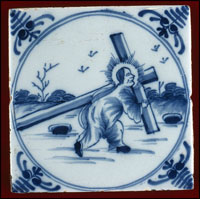Faith and Reason

By the early eighteenth century, expanding scientific and philosophical horizons encouraged educated people to esteem science as the conqueror of superstition and ignorance and inevitably led them to question accepted Christian truths based on biblical revelation.
The Enlightenment derived its name from the struggle in the seventeenth and eighteenth centuries to shine light into the recesses of the human mind benighted by superstition and ignorance. A series of scientific revelations that began during the Renaissance fostered ideas of progress and methods of reasoning that offered the first serious alternative to medieval beliefs upheld by religious and civil authorities in the Christianized west. From Copernicus's theory that the earth and planets revolved around the sun to the universal laws of gravitation put forward by Isaac Newton in Principia (1687), the Scientific Revolution promised to liberate human beings from the fear and anxiety evoked by the unknown. Farsighted seventeenth-century philosophers such as Francis Bacon championed the modern scientific method of careful and replicable experiments and logical thinking over theological synthesis and philosophical speculation. The laws of science seemed so irrefutable and so different from the older view of nature that, by the 1690s, as one historian has put it, the "new, reforming mentality inspired a cultural war with orthodox Christianity that began in Western Europe and continued right up to the French Revolution."
The effects of this tug-of-war were not as predictable as it might first appear. Newton himself believed that the laws by which the forces of nature operated were proof of the "greater glory of God." Moreover, the Enlightenment in England and America was not so much opposed to religion as in partnership with it. Liberal clergymen in England and educated Protestant thinkers in the colonies came to see God's purpose in the ordered Newtonian universe. In other words, they could have their Bible along with their science. Other thinkers and writers caught up in the Enlightenment, particularly on the Continent, used Newton's discoveries to dispense with God altogether. In educated British and American circles, however, the "Protestant version of science" prevailed over the atheistic Enlightenment.
Although the Church of England in Virginia revered reason in the service of religion, many among the educated colonial elite distrusted organized religion. In their view, medieval mysticism had corrupted the simple message of Christianity. Moreover, they were troubled by the degree to which, contrary to reason, Christian churches of their own time relied for religious insight on biblical revelation and accounts of miracles. An early manifestation of this attitude is found in the case of Sir John Randolph of Williamsburg, a member of the Bruton Parish vestry. Probated in 1737, his will noted that "I have been reproached by many people especially the clergy in the article of religion" and have been called "names very familiar to blind zealots such as deist heretic and schismatic."
Sir John's religious beliefs, as explained in his will, appear similar to those of a number of members of the Revolutionary generation, some of whom were schooled in scientific advances and Enlightenment rationalism on both sides of the Atlantic. Thomas Jefferson spent several years in Williamsburg in the company of men of the Enlightenment stripe: William and Mary professor William Small, Lieutenant Governor Francis Fauquier, a member of the Royal Society, and the provincial scholar, George Wythe. Jefferson expressed admiration for the moral system of Jesus, which he described as the most "sublime ever preached to man." Jefferson, however, doubted the divinity of Christ, was opposed to orthodox Christian doctrine of the Trinity, and believed that God was a remote creator who had set the ordered universe in motion. This new "rational" religion had very little in common with versions of Christianity steeped in miracles and prophecy.




